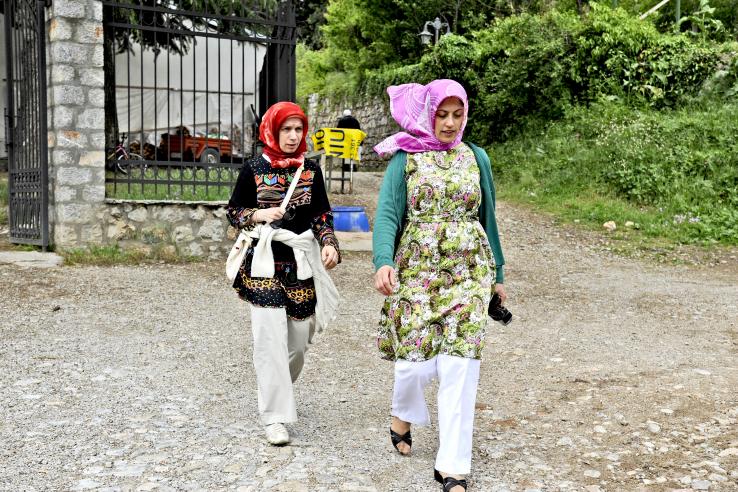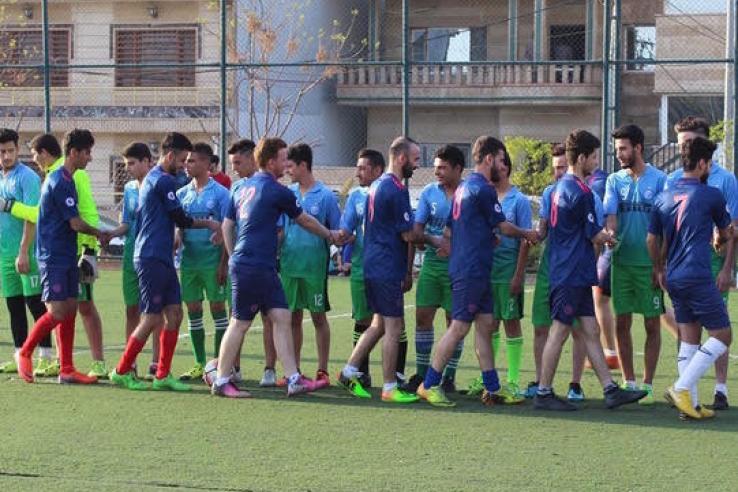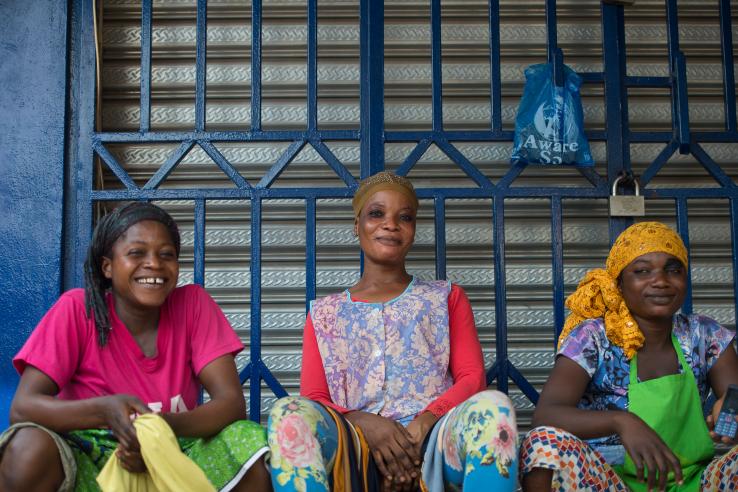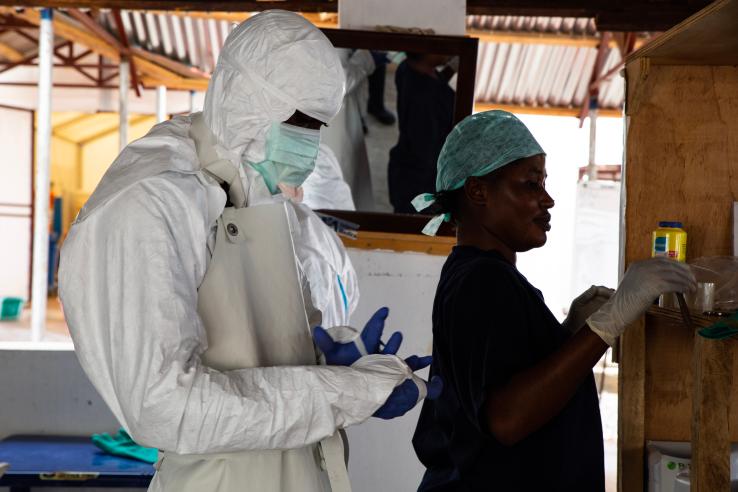Search our database of policy briefcases, bulletins, and evidence reviews. Briefcases summarize the results and policy recommendations from one randomized evaluation, while bulletins synthesize the broader policy lessons emerging from multiple evaluations on the same topic. Evidence reviews summarize an existing academic literature review, like a handbook chapter or white paper, for a policy audience.
Error message
- User warning: Trying to overwrite a cache redirect for "entity_view:menu_link_content:41:default:es:[languages:language_content]=es:[languages:language_interface]=es:[route.name.is_layout_builder_ui]=is_layout_builder_ui.1:[theme]=jpal:[user.permissions]=c16a756118b4c6c4b0dfdc4c8da75aa8bf5904f46b83aea1bfccbaab9625754c" with one that has nothing in common, old one at address "languages:language_content, route.name.is_layout_builder_ui, languages:language_interface, theme, user.permissions" was pointing to "url.query_args:lang", new one points to "languages:language_url". in Drupal\Core\Cache\VariationCache->set() (line 144 of core/lib/Drupal/Core/Cache/VariationCache.php).
- User warning: Trying to overwrite a cache redirect for "entity_view:menu_link_content:43:default:es:[languages:language_content]=es:[languages:language_interface]=es:[route.name.is_layout_builder_ui]=is_layout_builder_ui.1:[theme]=jpal:[user.permissions]=c16a756118b4c6c4b0dfdc4c8da75aa8bf5904f46b83aea1bfccbaab9625754c" with one that has nothing in common, old one at address "languages:language_content, route.name.is_layout_builder_ui, languages:language_interface, theme, user.permissions" was pointing to "url.query_args:lang", new one points to "languages:language_url". in Drupal\Core\Cache\VariationCache->set() (line 144 of core/lib/Drupal/Core/Cache/VariationCache.php).
- User warning: Trying to overwrite a cache redirect for "entity_view:menu_link_content:44:default:es:[languages:language_content]=es:[languages:language_interface]=es:[route.name.is_layout_builder_ui]=is_layout_builder_ui.1:[theme]=jpal:[user.permissions]=c16a756118b4c6c4b0dfdc4c8da75aa8bf5904f46b83aea1bfccbaab9625754c" with one that has nothing in common, old one at address "languages:language_content, route.name.is_layout_builder_ui, languages:language_interface, theme, user.permissions" was pointing to "url.query_args:lang", new one points to "languages:language_url". in Drupal\Core\Cache\VariationCache->set() (line 144 of core/lib/Drupal/Core/Cache/VariationCache.php).
- User warning: Trying to overwrite a cache redirect for "entity_view:menu_link_content:45:default:es:[languages:language_content]=es:[languages:language_interface]=es:[route.name.is_layout_builder_ui]=is_layout_builder_ui.1:[theme]=jpal:[user.permissions]=c16a756118b4c6c4b0dfdc4c8da75aa8bf5904f46b83aea1bfccbaab9625754c" with one that has nothing in common, old one at address "languages:language_content, route.name.is_layout_builder_ui, languages:language_interface, theme, user.permissions" was pointing to "url.query_args:lang", new one points to "languages:language_url". in Drupal\Core\Cache\VariationCache->set() (line 144 of core/lib/Drupal/Core/Cache/VariationCache.php).
- User warning: Trying to overwrite a cache redirect for "entity_view:menu_link_content:47:default:es:[languages:language_content]=es:[languages:language_interface]=es:[route.name.is_layout_builder_ui]=is_layout_builder_ui.1:[theme]=jpal:[user.permissions]=c16a756118b4c6c4b0dfdc4c8da75aa8bf5904f46b83aea1bfccbaab9625754c" with one that has nothing in common, old one at address "languages:language_content, route.name.is_layout_builder_ui, languages:language_interface, theme, user.permissions" was pointing to "url.query_args:lang", new one points to "languages:language_url". in Drupal\Core\Cache\VariationCache->set() (line 144 of core/lib/Drupal/Core/Cache/VariationCache.php).
- User warning: Trying to overwrite a cache redirect for "entity_view:menu_link_content:52:default:es:[languages:language_content]=es:[languages:language_interface]=es:[route.name.is_layout_builder_ui]=is_layout_builder_ui.1:[theme]=jpal:[user.permissions]=c16a756118b4c6c4b0dfdc4c8da75aa8bf5904f46b83aea1bfccbaab9625754c" with one that has nothing in common, old one at address "languages:language_content, route.name.is_layout_builder_ui, languages:language_interface, theme, user.permissions" was pointing to "url.query_args:lang", new one points to "languages:language_url". in Drupal\Core\Cache\VariationCache->set() (line 144 of core/lib/Drupal/Core/Cache/VariationCache.php).
- User warning: Trying to overwrite a cache redirect for "entity_view:menu_link_content:54:default:es:[languages:language_content]=es:[languages:language_interface]=es:[route.name.is_layout_builder_ui]=is_layout_builder_ui.1:[theme]=jpal:[user.permissions]=c16a756118b4c6c4b0dfdc4c8da75aa8bf5904f46b83aea1bfccbaab9625754c" with one that has nothing in common, old one at address "languages:language_content, route.name.is_layout_builder_ui, languages:language_interface, theme, user.permissions" was pointing to "url.query_args:lang", new one points to "languages:language_url". in Drupal\Core\Cache\VariationCache->set() (line 144 of core/lib/Drupal/Core/Cache/VariationCache.php).
- User warning: Trying to overwrite a cache redirect for "entity_view:menu_link_content:55:default:es:[languages:language_content]=es:[languages:language_interface]=es:[route.name.is_layout_builder_ui]=is_layout_builder_ui.1:[theme]=jpal:[user.permissions]=c16a756118b4c6c4b0dfdc4c8da75aa8bf5904f46b83aea1bfccbaab9625754c" with one that has nothing in common, old one at address "languages:language_content, route.name.is_layout_builder_ui, languages:language_interface, theme, user.permissions" was pointing to "url.query_args:lang", new one points to "languages:language_url". in Drupal\Core\Cache\VariationCache->set() (line 144 of core/lib/Drupal/Core/Cache/VariationCache.php).
- User warning: Trying to overwrite a cache redirect for "entity_view:menu_link_content:56:default:es:[languages:language_content]=es:[languages:language_interface]=es:[route.name.is_layout_builder_ui]=is_layout_builder_ui.1:[theme]=jpal:[user.permissions]=c16a756118b4c6c4b0dfdc4c8da75aa8bf5904f46b83aea1bfccbaab9625754c" with one that has nothing in common, old one at address "languages:language_content, route.name.is_layout_builder_ui, languages:language_interface, theme, user.permissions" was pointing to "url.query_args:lang", new one points to "languages:language_url". in Drupal\Core\Cache\VariationCache->set() (line 144 of core/lib/Drupal/Core/Cache/VariationCache.php).
- User warning: Trying to overwrite a cache redirect for "entity_view:menu_link_content:57:default:es:[languages:language_content]=es:[languages:language_interface]=es:[route.name.is_layout_builder_ui]=is_layout_builder_ui.1:[theme]=jpal:[user.permissions]=c16a756118b4c6c4b0dfdc4c8da75aa8bf5904f46b83aea1bfccbaab9625754c" with one that has nothing in common, old one at address "languages:language_content, route.name.is_layout_builder_ui, languages:language_interface, theme, user.permissions" was pointing to "url.query_args:lang", new one points to "languages:language_url". in Drupal\Core\Cache\VariationCache->set() (line 144 of core/lib/Drupal/Core/Cache/VariationCache.php).
- User warning: Trying to overwrite a cache redirect for "entity_view:menu_link_content:58:default:es:[languages:language_content]=es:[languages:language_interface]=es:[route.name.is_layout_builder_ui]=is_layout_builder_ui.1:[theme]=jpal:[user.permissions]=c16a756118b4c6c4b0dfdc4c8da75aa8bf5904f46b83aea1bfccbaab9625754c" with one that has nothing in common, old one at address "languages:language_content, route.name.is_layout_builder_ui, languages:language_interface, theme, user.permissions" was pointing to "url.query_args:lang", new one points to "languages:language_url". in Drupal\Core\Cache\VariationCache->set() (line 144 of core/lib/Drupal/Core/Cache/VariationCache.php).
- User warning: Trying to overwrite a cache redirect for "entity_view:menu_link_content:59:default:es:[languages:language_content]=es:[languages:language_interface]=es:[route.name.is_layout_builder_ui]=is_layout_builder_ui.1:[theme]=jpal:[user.permissions]=c16a756118b4c6c4b0dfdc4c8da75aa8bf5904f46b83aea1bfccbaab9625754c" with one that has nothing in common, old one at address "languages:language_content, route.name.is_layout_builder_ui, languages:language_interface, theme, user.permissions" was pointing to "url.query_args:lang", new one points to "languages:language_url". in Drupal\Core\Cache\VariationCache->set() (line 144 of core/lib/Drupal/Core/Cache/VariationCache.php).
- User warning: Trying to overwrite a cache redirect for "entity_view:menu_link_content:60:default:es:[languages:language_content]=es:[languages:language_interface]=es:[route.name.is_layout_builder_ui]=is_layout_builder_ui.1:[theme]=jpal:[user.permissions]=c16a756118b4c6c4b0dfdc4c8da75aa8bf5904f46b83aea1bfccbaab9625754c" with one that has nothing in common, old one at address "languages:language_content, route.name.is_layout_builder_ui, languages:language_interface, theme, user.permissions" was pointing to "url.query_args:lang", new one points to "languages:language_url". in Drupal\Core\Cache\VariationCache->set() (line 144 of core/lib/Drupal/Core/Cache/VariationCache.php).
- User warning: Trying to overwrite a cache redirect for "entity_view:menu_link_content:61:default:es:[languages:language_content]=es:[languages:language_interface]=es:[route.name.is_layout_builder_ui]=is_layout_builder_ui.1:[theme]=jpal:[user.permissions]=c16a756118b4c6c4b0dfdc4c8da75aa8bf5904f46b83aea1bfccbaab9625754c" with one that has nothing in common, old one at address "languages:language_content, route.name.is_layout_builder_ui, languages:language_interface, theme, user.permissions" was pointing to "url.query_args:lang", new one points to "languages:language_url". in Drupal\Core\Cache\VariationCache->set() (line 144 of core/lib/Drupal/Core/Cache/VariationCache.php).
- User warning: Trying to overwrite a cache redirect for "entity_view:menu_link_content:62:default:es:[languages:language_content]=es:[languages:language_interface]=es:[route.name.is_layout_builder_ui]=is_layout_builder_ui.1:[theme]=jpal:[user.permissions]=c16a756118b4c6c4b0dfdc4c8da75aa8bf5904f46b83aea1bfccbaab9625754c" with one that has nothing in common, old one at address "languages:language_content, route.name.is_layout_builder_ui, languages:language_interface, theme, user.permissions" was pointing to "url.query_args:lang", new one points to "languages:language_url". in Drupal\Core\Cache\VariationCache->set() (line 144 of core/lib/Drupal/Core/Cache/VariationCache.php).
- User warning: Trying to overwrite a cache redirect for "entity_view:block:mainnavigation_2:[languages:language_content]=es:[languages:language_interface]=es:[route.menu_active_trails:main]=menu_trail.main|:[route.name.is_layout_builder_ui]=is_layout_builder_ui.1:[theme]=jpal:[user.permissions]=c16a756118b4c6c4b0dfdc4c8da75aa8bf5904f46b83aea1bfccbaab9625754c" with one that has nothing in common, old one at address "languages:language_interface, route.menu_active_trails:main, theme, user.permissions, languages:language_content, route.name.is_layout_builder_ui" was pointing to "url.query_args:lang", new one points to "languages:language_url". in Drupal\Core\Cache\VariationCache->set() (line 144 of core/lib/Drupal/Core/Cache/VariationCache.php).
- User warning: Trying to overwrite a cache redirect for "entity_view:block:footerlogoblock:[languages:language_interface]=es:[theme]=jpal:[user.permissions]=c16a756118b4c6c4b0dfdc4c8da75aa8bf5904f46b83aea1bfccbaab9625754c" with one that has nothing in common, old one at address "languages:language_interface, theme, user.permissions" was pointing to "url.query_args:lang", new one points to "languages:language_url". in Drupal\Core\Cache\VariationCache->set() (line 144 of core/lib/Drupal/Core/Cache/VariationCache.php).
Evaluations
Policy Publications
Displaying 19-27 of 86








